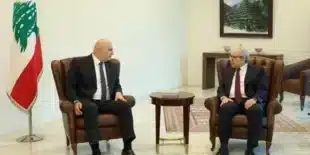Arab countries are gearing up to propose a UN resolution calling for an immediate humanitarian cease-fire in Gaza, fully aware it will face a veto from the United States. This effort aims to demonstrate widespread international support for ending the conflict between Israel and Hamas. The Security Council has slated a vote on this Arab-endorsed resolution for Tuesday morning. The US, through Ambassador Linda Thomas-Greenfield, has expressed opposition to the resolution, arguing it could undermine ongoing efforts to broker a deal for a ceasefire and the release of hostages taken during Hamas’ attack on October 7.
In an unexpected move, the US has proposed an alternative resolution advocating for a temporary ceasefire, linked to the release of all hostages and urging the removal of all barriers to humanitarian aid delivery. This proposal suggests a pathway towards a sustainable end to hostilities.
US Deputy Ambassador Robert Wood criticized the Arab-backed resolution as ineffective in achieving the desired outcomes of hostage release, increased aid, and a prolonged conflict pause. The US draft offers another approach, emphasizing negotiation without setting a specific timeline for a vote.
Arab nations and many UN member states have long called for a ceasefire as Israel’s military action intensifies in response to Hamas’ October 7 assault, which resulted in 1,200 deaths and numerous hostages. With Palestinian casualties exceeding 29,000, the urgency for a ceasefire is paramount, especially with the potential for a humanitarian crisis in Rafah, where 1.5 million Palestinians have sought refuge.
The Arab-backed draft demands an immediate ceasefire, the release of all hostages, condemns forced displacement, ensures unrestricted humanitarian access, and calls for adherence to international law. The US draft, while not explicitly naming Israel, advises against a major ground offensive in Rafah and cautions against further civilian displacement, highlighting the potential regional implications.
US efforts to negotiate a hostage deal have been ongoing, with President Biden engaging leaders from Egypt, Qatar, and Israel. Though differences persist, the US views its proposed deal as the best chance for a meaningful ceasefire and humanitarian relief.
Following anticipated US opposition to the Arab resolution, the matter could be taken to the UN General Assembly, where approval is likely, though such resolutions lack legal binding power compared to those of the Security Council.
The Security Council may then deliberate the US’s more detailed proposal, marking the first potential condemnation of Hamas’ actions on October 7, including hostage-taking and violence. The draft subtly criticizes Israel’s actions and rejects any attempts at demographic or territorial changes in Gaza contrary to international law.


